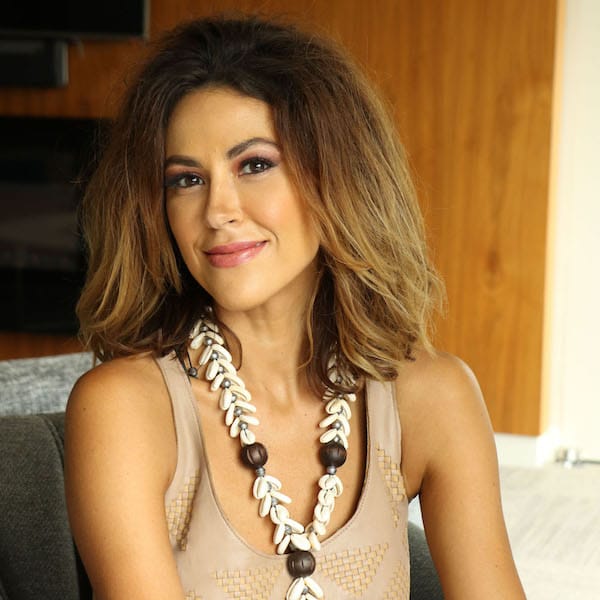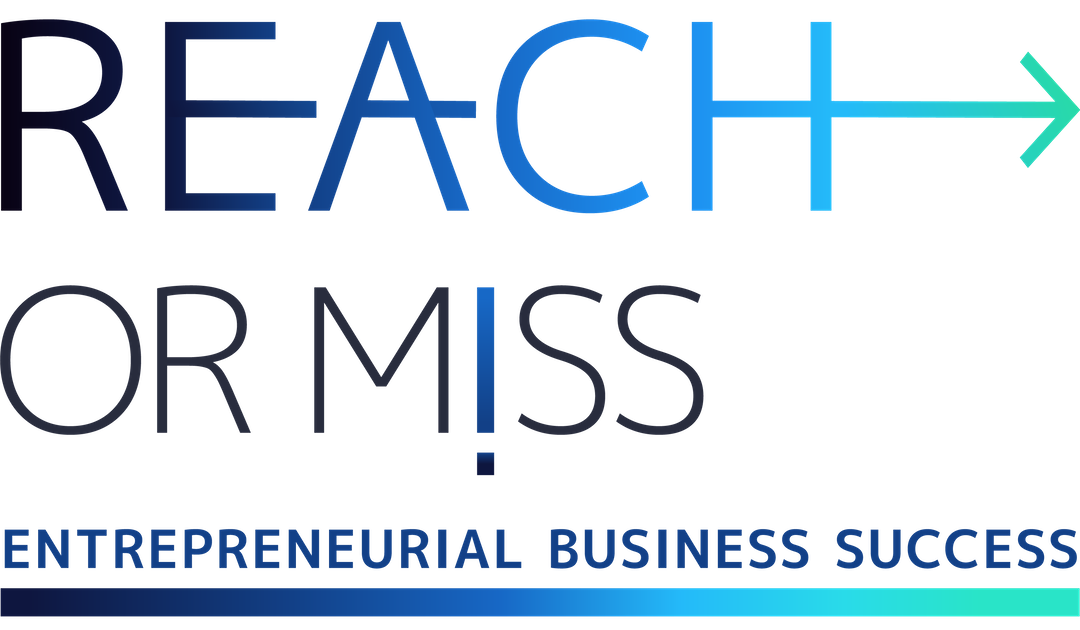Ep. 022 – Elizabeth Scherle – Co-Founder and President of Influenster, got to the critical point of Go Big or Go Home, they took the risk and this single decision made the whole difference for Influenster’s breakthrough.

Elizabeth Scherle Show Notes
Elizabeth Scherle is the Co-Founder and President of Influenster, the product discovery and reviews platform that enables socially-savvy consumers to find new products and get advice to make informed purchases.
With a community of over 4 million members, these digital influencers have written over 18 million reviews on over 2 million products, spreading the word all over their social media networks.
Originally from Henderson, IA, Elizabeth received her B.A. in Marketing from the W.P. Carey School of Business at Arizona State University.
Most passionate about
- As far as work, we are working on global expansion, which is really exciting for Influenster. We started in the US around 7 years ago and then launched in Canada. We just launched in the UK and now we are working on the Middle East, which is a completely new market for us.
- As far of personal life, I think it’s important as an entrepreneur to consist on both, so to make sure that I do that, my strategy has been to book dance workshops because I love to dance. I just finished up a jazz plan, I did ballet before that, and I’m thinking of doing tap dance next…
- As for the future: The way that we’ve made money traditionally has been through a lot of brand (the well-known brand companies) partnerships. Brands pay us to run campaigns of market products to members of our community. Now we are building a user engagement squad that’s going to focus on user experience.
The vision is to be a “TripAdvisor for Products”. Then everyone will think of Influenster when they are about to buy a product.
The company
- We concepted the idea around 8-9 years ago. I was working at another startup – a fashion event company – my role was selling big events to brands in terms of sponsorships and put their products in the gift bag. So, I knew a lot about product sampling, I learned a tremendous amount in sales and I worked in a startup that was 10 people when I started and became 50 after 5 years. I felt I learned almost everything I could and I was really itching to do something of my own.
- At the same time, I met my current business partner, he was working at a more traditional marketing research firm, and he found that a lot of the studies they were doing were very costly and took months and months. I kept hearing from my clients (the brands) that they would like to get much more data of the customers that getting their products in the gift bags.
- So we thought we could really modernize market research, to create an online platform where we get a lot of data about people and we send them products that match their lifestyle and our members will give feedback for the brands.
- We didn’t raise money; it was out of our own pockets. We built a very simple web site with 3 pages and we tried it and had a response rate of over 90%! While normally it’s like 10%. We made people answer a very long survey and we were really surprised they were willing to share so much data about themselves as shoppers. Luckily, my partner knew how to analyze all the data, we shared it with the brands and they liked it and that’s really how Influenster was born.
The customers today
- Influenster has two sets of customers. We have our user base, our members who sign up, they writing reviews, test products, etc. We call them ‘Influensters’. We have our other set of customers, which are our clients, our Brands. We really serve two audiences with everything that we’re doing.
- In terms of knowing who the customers were, from the Brands perspective, they were the Consumer Package Goods companies like food, beauty, health, and that’s who we actually built the service for, since I worked with them before we understood their need.
- As to our other customer base, our members, … people who like products, the “beauty junkies”, they like to try everything new, want to share an opinion. That started 7 years ago, with time we saw that our members are sharing their opinions on Social Media without being asked, and making a buzz for the brands and we add that to our offer to the Brands, so looking at people’s social media scores, how many friends and followers they have did become a factor for our customer base as well.
- One thing we really wanted to focus on from the beginning was not paying the members. From the beginning it was all about authenticity, and that is still true today. So in terms of customers from the beginning we had a good idea who we’re looking for.
Elizabeth’s best advice about approaching the customer
- I think of my clients as the Brands and the biggest thing that we did that helped us succeed by far was our “give – get” approach. We targeted the right Brands and we started to approach the consumers (our members) for free, without asking anything from the Brands, and then we came to them with the results and discuss it with them. And that worked.
- My other piece of advice is just listen. We put a lot of attention to listen to our clients and to our members and that creates opportunities for growth.
Biggest failure with a customer
- There were definitely failures. I think you need to try new things in order to succeed. One of the things happened when we were small. We worked very hard to manage and give the products for free first, and we just won a paying business from one of the huge consumer package goods companies. When we started sending packages to people, we saw in the social media very early that some of these packages were exploding. And we were kind of freaking out. This was a big company and they didn’t realize they had a problem, but we decided to go to the clients and not to hide the problem and that paid off. But it was a scary moment.
Biggest success due to the right customer approach
- The biggest thing that made an impact on our business was really listening to the Brands early on. We were not funded at the beginning, everything came out of our pockets. We started the business, we tested it and we knew Brands liked it, but when we were actually trying to sell, we saw that some Brands are not reacting to our sales efforts. It took a lot of research and questioning and then we figured it was the time to go big or go home… we were giving like 200 boxes to consumers and in order to work with the big brands like P&G or L’Oréal it had to be thousands of people. We were funding that by ourselves and were really stressed out, but we decided to do a Holiday Box and that went from 250 people to 5000 and when we got to 5000 we started getting emails and responses from the Brands. And that single decision really made the difference for us. Otherwise Influenster was probably closing its doors, since we couldn’t make enough money because we weren’t scaling.
Recommendation of tools for customer focus, marketing or sales
- I would like to say to entrepreneurs, if you’re just starting out, be careful with the tools, because most of the time you don’t need them yet, but the one thing we always did use was subscribe to contact list like “The List” which we use now. But you must know your exact customers’ base first. It gives you a good starting point to know people that you should be pitching.
- We also use Slack today, we have 70 people and we found it useful for us, but I think that those who are starting out don’t need tools at the beginning.
- Also, for our kind of product, I believe you need a strong referral program.
Recommendation of a person like mentor or other service provider that impacts Influenster
- In our first days we used a business consultant here in New York. We had an advisor in a free small business service program through one of the colleges. And it helped; especially with things we didn’t know about establishing a new business. So I recommend that entrepreneurs check what services they can get where they are located. You may find a free service that can help you.
What is your one key success factor?
- Personally, the key to my own success was learning to sell. I kind of got forced into doing sales in the startup I worked for. And it forced me to get into a zone where I was really uncomfortable, but I tried. And I think if you can do that, you can sell everything and as an entrepreneur, you’re constantly selling yourself, even if you’re not ‘doing the sales. Whether it’s talking to an investor, to a new partner, even getting an employee, you need to be able to communicate clearly the benefits of your company. I think that if you have confidence for doing sales you can definitely win.
Elizabeth’s last piece of guidance
- Just take a step back and enjoy the ride. You say to yourself, ‘if I’ll solve this, it will be perfect’, but it never gets perfect. It gets easier when the company grows, but then new challenges arrive. We can feel lonely sometimes, as entrepreneurs. I always tell myself that everyone feels the same, nothing is perfect, and it’s really important to appreciate how far you have come sometimes.
Resources Mentioned:
Links for our listeners to sign up for Influenster:
Ways to connect with Elizabeth on social media:
Recommended Tools:
- The List– The List Online is an advertising database that helps you quickly identify and engage key decision makers, setting your sales team up for success.
- Slack – Slack is where work flows. It’s where the people you need, the information you share, and the tools you use come together to get things done.
More resources for Entrepreneurs
- Don’t Miss – Customer Focus Strategy & Execution: Market Analysis for Fundraising
- Hayut Yogev’s Latest post: The three free, most practical steps to researching and locating your market
- Former interview: With Christoph Dahn who dedicate his work life as digital marketer to helping Green, Fair and Ethical companies succeed

